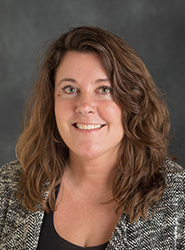Ten Years of Progress

“A wonderful pocket of joy and a place where you go to breathe,” is how our department was described in the first line of a recent report to the university as part of our decennial Academic Program Review (APR). This description, which came from interviews with our graduate students, perfectly encapsulates how I feel about our department, so I was delighted to see this reflected in our APR.
An APR is an intensive dive into our department’s progress over the last ten years and our current condition, conducted by a team of highly esteemed sociologists from other research-intensive universities and faculty leaders from within UT. The team spent two days on campus in March 2023 talking to our undergraduate and graduate students, staff, faculty, heads of other social science departments, and leadership in the College of Arts and Sciences as well as the Provost’s Office. They also reviewed a 151-page self-study that our department conducted last fall under the direction of Michelle Brown.
In April, they produced a report to the provost and dean highlighting our significant contributions to the university, profession, and community. The report provides external validation for something that I already know: UT’s Department of Sociology is a special place where scholars—both established and in training—work every day in a collegial, caring, and conscientious way to make the world a better place.
In a recent address to the state, our chancellor confirmed that UT has been ranked as one of the top producers of student Fulbright scholarships, and our sociology and global studies students are among these recipients. The report highlights how we provide high-quality educational opportunities by noting that undergraduate students in the program “are trained to think as change actors, with skills and critical perspectives appropriate for entry-level workforce positions across multiple domains.” They note how excited these students are about what they study and how prepared they feel for their future. That our undergraduate students in both sociology and global studies are first-rate is hard to refute. It is a joy for me to interact with our great students.
The report also underscores how we conduct research that makes life and lives better, calling our research record “impressive” and making the following assessment:
The faculty and graduate students in the Department of Sociology are a highly productive group of scholars by virtually every metric. [Their work] demonstrates an interdisciplinary contribution to our understanding of the pressing social issues of crime, the environment, racial inequality, and the global political economy. This has also served to strengthen the department’s recruitment and retention through a growing reputation across multiple communities.
We are small but mighty. Although we have a much smaller faculty and graduate program than our peers, in the last decade we have collectively published nearly 200 journal articles, more than 100 book chapters, and 52 books. Our faculty members have submitted 157 research proposals and amassed $4.2 million in funding. Additionally, last year we tenured four of our highly productive assistant (now associate) professors, and two of our professors were named distinguished professors, joining the two who already hold this title.
Finally, the report highlights the ways in which we demonstrate that diversity and community are enduring sources of strength as well as the way in which we serve as role models for other departments “at a time when such role models are desperately needed.” The reviewers conclude, “The Department of Sociology is a wonderfully vibrant, consciously cultivated community, dedicated to a liberation-centered sociology.”
I am proud to be part of this community—a community that has grown this fall with the addition of three new faculty and 13 incoming graduate students. We plan to grow our faculty more this year as we search for three new assistant professors. We are strong because we all work together, and together we will face an even brighter future.
Stephanie Bohon,
Department Head